Olympics on steroids: Inside the crazy world of the Enhanced Games
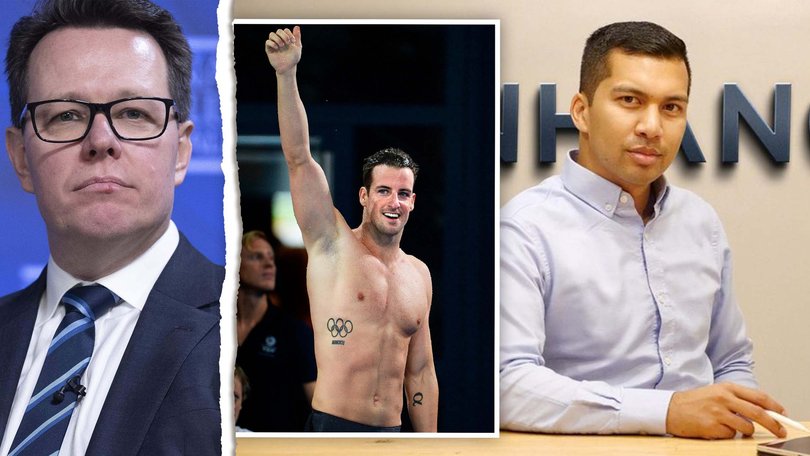
“Better than the Olympics.”
Sales pitches don’t come much bolder than that.
And bold is the word being used to sum up the Enhanced Games, an arena where winning at all costs really is celebrated.
Sign up to The Nightly's newsletters.
Get the first look at the digital newspaper, curated daily stories and breaking headlines delivered to your inbox.
By continuing you agree to our Terms and Privacy Policy.At its core, athletes at the Enhanced Games will be encouraged to push their bodies past peak performance and endurance to break records and, of course, win money.
While that is the basis of most sports, especially at Olympic level, what separates the new Games from the Olympics is not only are performance-enhancing drugs and techniques permitted — they are actively encouraged.
Dubbed the “doping Olympics” and brought to life by an Australian entrepreneur, the Enhanced Games website gives a clear summation.
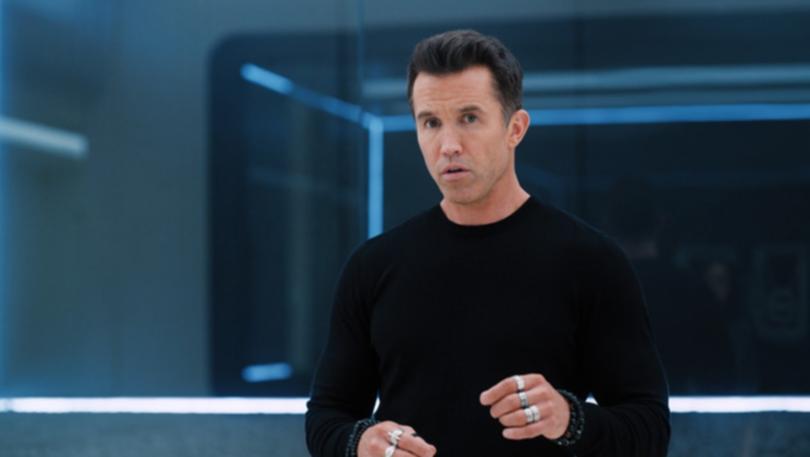
“For too long, enhanced athletes have been vilified, shamed, and forced into silence,” it says.
“It is our duty to show our support for athletes, for science, for the pursuit of human excellence.”
The use of performance-enhancing drugs, or doping, was outlawed at the Olympics in 1967 due to concerns over long-term health risks, with the abuse of these substances capable of causing serious damage.
Since then, hundreds of competitors have been banned and had medals stripped for testing positive for restricted substances.
Some of the world’s greatest athletes have been punished for using banned substances, most notably seven-time Tour de France champion Lance Armstrong.
Armstrong was stripped of the seven titles, won consecutively, plus an Olympic medal after confessing to using banned performance-enhancing drugs and blood transfusions during his storied cycling career.
Almost all professional and many semi-professional sports have followed the Olympics, with global agencies like the World Anti-Doping Agency put in place to independently stamp out these illicit practises.
Australia even has its own watchdog, the Australian Sports Anti-Doping Authority, to work alongside WADA to maintain the integrity of clean sports.
However, organisers behind the Enhanced Games label the 1967 ban as the moment scientific innovation in sport was “stifled”.
Much of their argument for endorsing the use of performance-enhancing techniques is rooted in having extensive scientific oversight of the athletes.
The competitors wouldn’t be left to their own devices as many are if they are trying to hide their use.
The Games has a scientific and medical advisory commission, and its co-founder and president, Dr Aron Ping D’Souza, says “there is no better forum for highlighting the centrality of science in our modern world than elite sports”.

There is also an athletes advisory commission made up of former winter and summer Olympians, including Canadian bobsleigh star and sports therapist Christina Smith.
Enhanced co-founder Christian Angermayer says the Games, which will likely feature sports in the athletics, aquatic, gymnastic, strength and combat disciplines, are about more than sport.
“I was instantly drawn to Enhanced Games’ forward-thinking ethos and its alignment with many elements of my own vision for the next human agenda,” he told the Games’ official website.
“Its core mission centres on building a platform that not only improves the safety and fairness of competition but also stimulates scientific breakthroughs and nurtures human advancement.
“The Enhanced Games will undoubtedly inspire the public’s imagination and reinforce the profound impact of science on human progress.”
One person whose imagination was inspired by the concept is former Olympic swimming legend and Australian Sports Commission boss Kieren Perkins, but not in the way organisers had hoped.
Speaking at a SportNXT conference in Melbourne last month, Perkins described the event as “borderline criminal”, adding that someone could die if the event, slated for 2025, went ahead.
“Someone will die if we allow that sort of environment to continue to foster and flourish,” the two-time Olympic 1500m freestyle gold medallist said.
He then doubled down in an interview with AAP, saying there was a reason doping had been banned in the first place.
“Performance-enhancing drugs have always been utilised and designed in a way to try to get an advantage that the human body is not built for, and it always leads to disaster,” Perkins said.
“The idea that you can just manage it in a vacuum is really quite silly.
“There is a litany of historical figures in sport who have ended up dying from being involved in taking performance-enhancing drugs, and it’s the reason why it’s illegal and should always remain that way.”
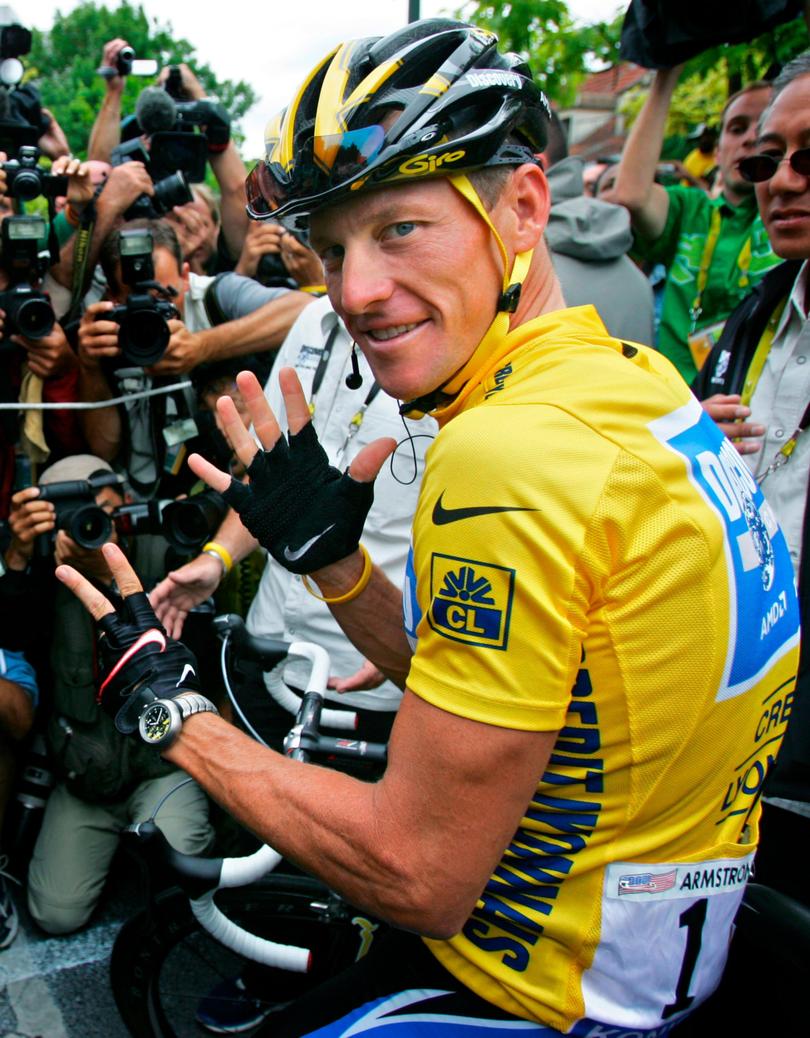
But former Australian swimmer James Magnussen has not been deterred in the least by the warnings.
The 32-year-old has come out of retirement and says he would “juice to the gills” in an attempt to smash the 50m freestyle world record, especially after D’Souza promised him $1.5 million if he could.
“I have kept myself in reasonable shape in retirement,” Magnussen told a sports podcast.
“They (Enhanced Games) have said they have a billion-dollar person backing them.
“If they put up $1m for the 50 freestyle world record, I will come on board as their first athlete.
“I’ll juice to the gills, and I’ll break it in six months.”
While Perkins did not call out Magnussen personally, he did say the sporting community should turn their backs on any and all athletes that take up doping to compete at the Enhanced Games.
“I certainly fear for them (athletes), and it’s disappointing because of the selfishness that’s involved,” he told AAP.
“The impact isn’t just on the individual; the impact is on potential generations, so there’s a high level of ignorance and selfishness that comes with it.
“Giving people the opportunity to be informed and understand what the risk is that they’re taking is a starting point, but it isn’t something that we should walk away from and say ‘If they want to go kill themselves, knock themselves out’.
“I don’t think civil society has been comfortable with that context for a long time.”
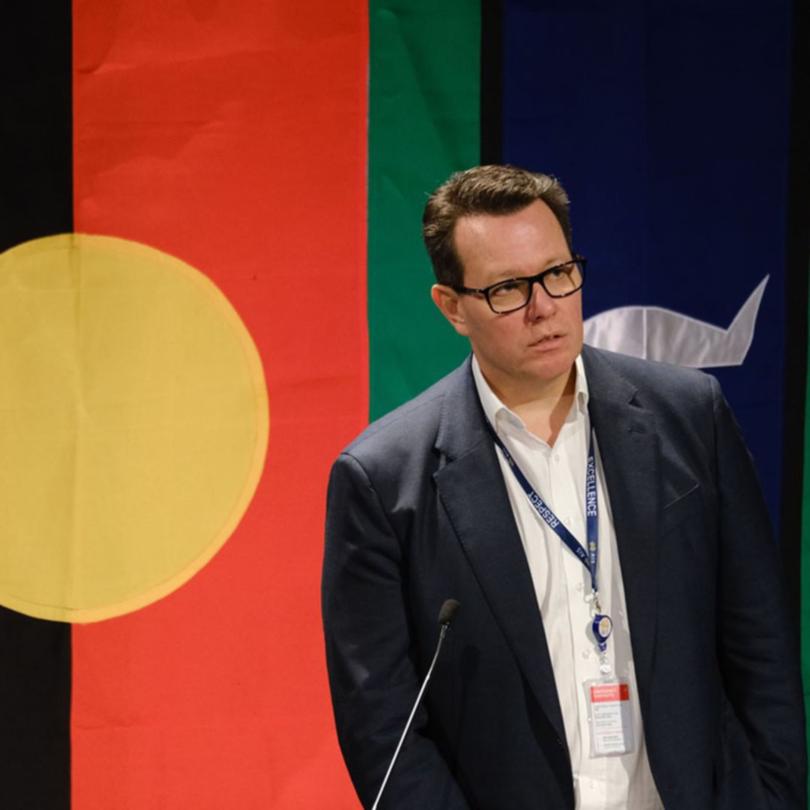
Dr D’Souza says if Magnussen were able to break the “most important” record in swimming, it could be a scientific breakthrough.
“Magnussen has the potential to show us what the human body, improved through science, is truly capable of,” Dr D’Souza said.
“Whilst we have not spoken with James yet, we wish to publicly confirm the prize money that will inspire him and many other Olympic heroes to join the Enhanced movement.
“I do not doubt that James Magnussen, so known for his tenacity, determination and giant six foot seven inches form, can break swimming’s most important world record.
“We will write James Magnussen a US$1m ($1.5m) cheque for breaking the 50-metre freestyle world record at the Enhanced Games.”
Then he put a sprinting legend’s mark in the gun as well.
“There will be multiple million-dollar prizes at the first Enhanced Games. The first enhanced athlete to publicly break Usain Bolt’s (100-metre sprint) world record will also get at least US$1m ($1.5m).”
None of the records broken during the competition would be certified given the use of performance enhancement, but the Games has attracted huge investors in tech giant Peter Thiel and entrepreneur Balaji Srinivasan, who have the cash to pay the prizes.
The project is even set to go to great lengths to explain and explore doping practises, with American actor and Wrexham Football Club co-owner Rob McElhenney’s More Better Productions to work alongside famous director Ridley Scott’s film company Ridley Scott Associates to produce a documentary in the lead-up to the event.
Sports documentaries have exploded in popularity over the last decade, with sports series such as Formula 1’s Drive to Survive generating millions of new fans for the sport and the Academy Award-winning Icarus which sensationally exposed the Russian doping scandal.
The Enhanced Games documentary would reportedly explore the athletes’ training ahead of the Games, presumably taking viewers behind the scenes of the doping world.
A statement from Enhanced Games revealed only that the series would “follow the unprecedented attempt to pioneer the world’s first sporting event allowing performance enhancements in competition”.
McElhenney, who produced the Disney+ series Welcome to Wrexham with Deadpool actor Ryan Reynolds, said he felt the Games deserved “thoughtful” exploration.
“More Better is honoured to partner with RSA to help tell the extraordinary story behind the Enhanced Games,” he said.
“From the moment we discovered this competition was in the works, we knew this deserved a deep exploration through a thoughtful docuseries lens.”
A casting call is currently out for athletes, with the documentary’s stars to be announced after the Paris Olympics in August.
The other side of the Games driving controversy is the push to have athletes who have been labelled cheats for doping reinstated as sporting heroes.
Online, its “Enhanced World Records” honour board lists several athletes who have had a record stripped over performance enhancements, misconduct allegations, or accusations of defying the World Anti-Doping Code.
“Whilst the historical record is obviously incomplete, we celebrate these individuals as pioneers of athletes’ rights and of science, and recognise their achievements as a benchmark of human athletic achievement, be it natural or enhanced,” a description above the list says.
The Enhanced Games commend all athletes for their enduring bravery in the face of oppression.
But it is more than just the lure of stardom and sporting heroism enticing athletes, with the multimillion dollar prize pools a revolution for Olympic-like competitions.
Between 2017 and 2021, the Olympics brought in almost $8 billion in revenue, but the International Olympic Committee did not pay the athletes.
Many train for four years to have one crack at an Olympic medal and don’t get paid for it, even if they win.
Some countries like Australia and the US pay bonuses to their competitors, but not all countries do, and they are a pittance compared to the extraordinary salaries drawn by basketball, American football and, to a lesser degree, AFL.
Olympic athletes rely on sponsors, which may be simple for more popular sports like tennis, but less so for discuss or pentathlon competitors.
Dr D’Souza has already gone on record offering multiple million-dollar or more prizes across several categories, and in an interview with Business Insider last month, he stated he had a moral high ground on fair pay.
“The IOC (International Olympic Committee) president literally lives in a palace, and the athletes earn nothing,” he said.
“So if you want an Olympic gold medal, sure, go and do it, but get financially exploited while you’re at it.”
The IOC presidency, held by Thomas Bach since 2013, is effectively a volunteer role but does come with a standing reservation at one of Switzerland’s swankiest hotels.
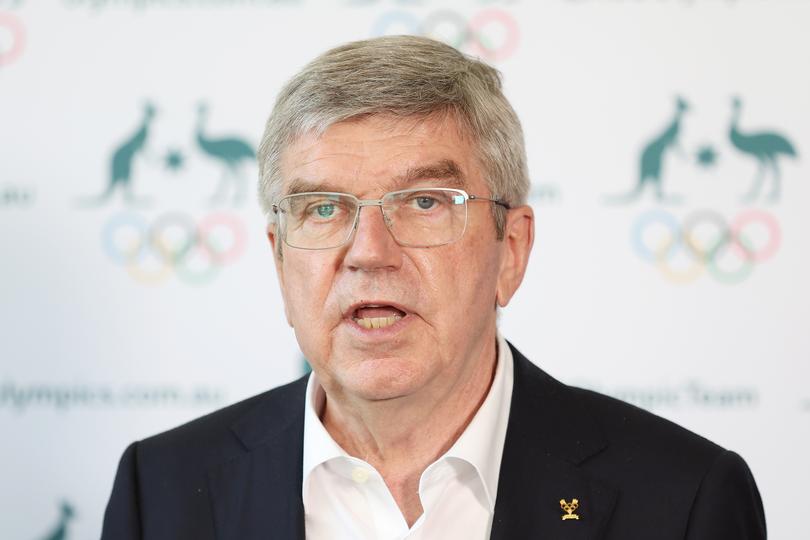
While reactions from athletes have been varied, The West Australian, The Sunday Times and The Nightly’s columnist Mitchell Johnson, who represented Australia in cricket, says Magnussen’s choice should be “accepted” in the same way he himself must accept any risks.
“I’m actually amazed it has taken until 2024 for an event like this to happen. It’s like a pub chat with mates — imagine everyone was doped up, it would be fair and even, and we would see records broken,” he wrote for The Nightly.
“Of course, there is nothing better than clean athletes competing fairly, training their backsides off in an attempt to break records cleanly.
“But people should direct their worry to ensuring clean sport is clean. The Enhanced Games is just a novelty, not to be taken too seriously, but something that will most likely draw people in to watch with intrigue.
“While we all have differing opinions on this, it is Magnussen’s life and the path he has chosen to take. Whatever the outcome from this, he will need to accept it. If he wants to put his body through it, then that’s his choice.
“He isn’t risking harming anyone but himself when it comes to the doping, and I’m sure he is speaking to medical people about any concerns that are there. I hope the Enhanced Games is only a one-off event.”
Despite the flourishing debate, the Enhanced Games is still little more than a concept.
Dr D’Souza hopes to hold the inaugural event in 2025, between the Paris and Los Angeles Olympic cycles, but no dates or venues are locked in as yet.
Whether the event comes to fruition or not, it has generated important conversations, for better or for worse.
Originally published on The Nightly
